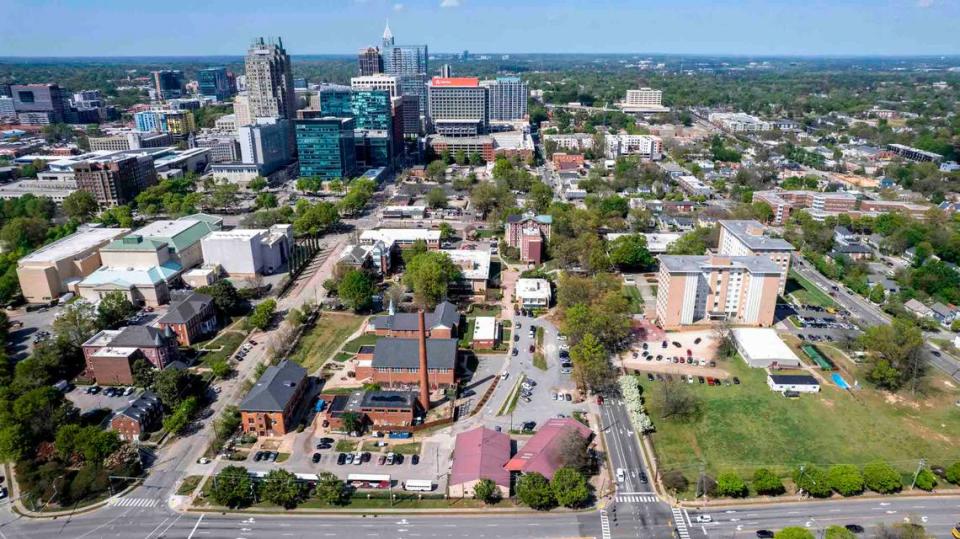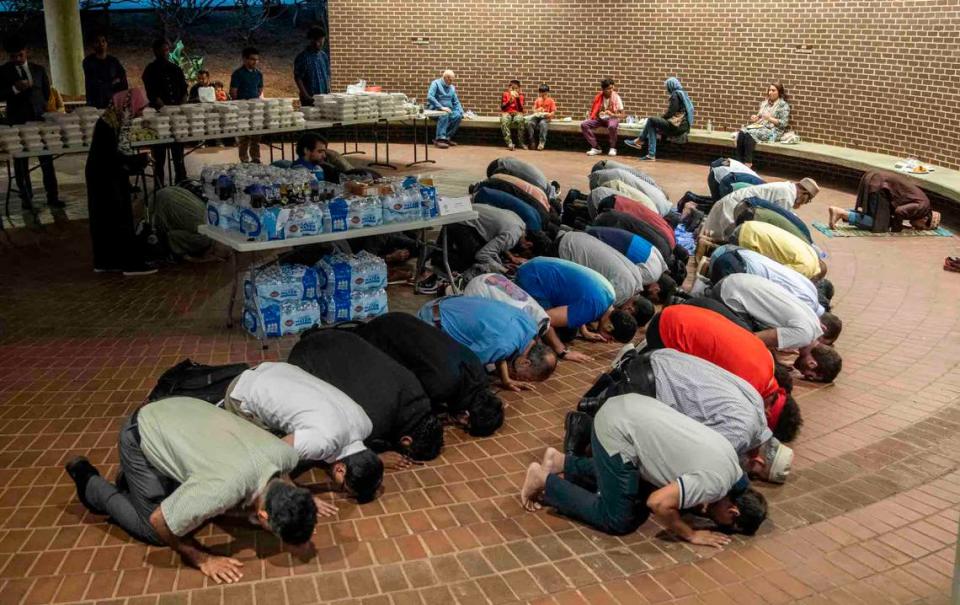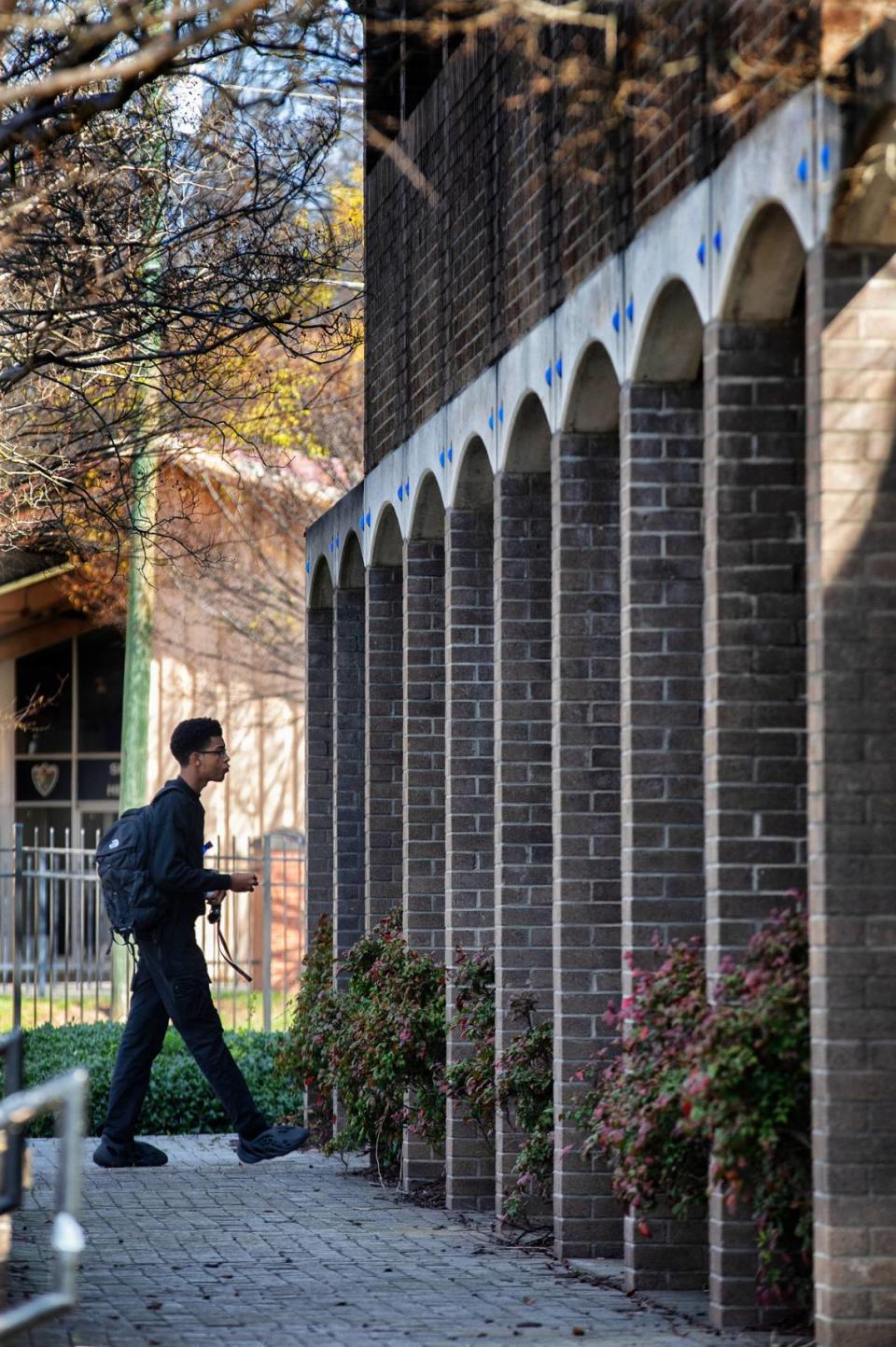Raleigh city leaders could rezone Shaw University campus Tuesday night. What’s at stake?
Shaw University will once again be before city leaders this week, asking to rezone its historic downtown campus.
Last month’s public hearing drew hundreds to the Raleigh Municipal Building, with the Raleigh City Council agreeing to continue the case until Tuesday night (May 2).
“I think it comes back to both sides being able to come to the table and have a conversation about what they would like to see,” Mayor Pro Tem Corey Branch said after the April 5 meeting. “I understand there might be some mistrust of themes that happened over a number of years, but we’ve got to start at some point and move forward.”
On Friday, Branch said he hopes the City Council makes a decision Tuesday.
What’s happening Tuesday?
The April public hearing will resume at the council’s 7 p.m. Tuesday meeting.
The council could close the public hearing and vote on the rezoning request. It could also take no action and keep the hearing open until a future meeting. It could also refer the case to a council committee for more discussion.
Groups against the rezoning, like the Council on American-Islamic Relations (CAIR), are urging community members to attend the meeting.
Shaw University is also encouraging supporters to attend.
What’s in the rezoning?
Shaw University wants to rezone its 26.5 acre campus to allow up to 30-story buildings on parts of the campus and to remove historic overlays that limit what can be built.
“This rezoning plan is the first step in that initiative to leverage our one great asset, and that is the real estate that Shaw has,” university President Paulette Dillard said during the last meeting, “and so to begin to address that long term sustainability.”
The current zoning allows up to three stories to 12 stories.
Shaw says it doesn’t plan to move its campus out of downtown or sell any of its “core property” in downtown.
“Instead, using a long-term ground lease structure, Shaw will maintain fee simple ownership of its land to preserve its real estate portfolio while also receiving fair market value for development projects, including upfront value, and potential opportunities for long-term participation in the projects’ success,” according to Shaw’s website for the rezoning case.
Shaw is required to preserve several historic buildings including Estey Hall, Tupper Memorial Hall, Leonard Hall and Tyler Hall, according to the zoning conditions. Vibration-sensitive equipment will be installed inside the halls when new development occurs within 100 feet. Those buildings could only be removed if more than 50% of the buildings are destroyed or damaged. The zoning conditions also call for the “retention or relocation” of the Rogers-Bagley-Daniels-Pegues House and the Charles Frazier House.
Some Shaw alumni against the rezoning say they don’t trust the university after what they say is years of mismanagement. Some neighbors are concerned about the redevelopment spurring greater gentrification in the nearby downtown neighborhoods and others worry about the campus losing its historic buildings.
What about the mosque?
Also against the rezoning are those worried about the future of the King Khalid Mosque. Some community members have argued that the university has not reopened the mosque to the public “as a stalling measure while it seeks (the) rezoning,” The News & Observer has previously reported.
Many of the people who attended the last meeting were area Muslims looking for the mosque to reopen after Shaw restricted access during the COVID-19 pandemic.
“Shaw University officials have made it clear that the reopening of the mosque to the public was a separate issue from the rezoning application,” according to a news release from CAIR. “In other words, they are not willing to guarantee the mosque’s existence on campus and intend on moving forward with a rezoning application that could permit the mosque’s sale and destruction.”
In a previous interview, Raleigh Mayor Mary-Ann Baldwin said the mosque was a separate issue and one the council couldn’t consider as part of the rezoning request.



